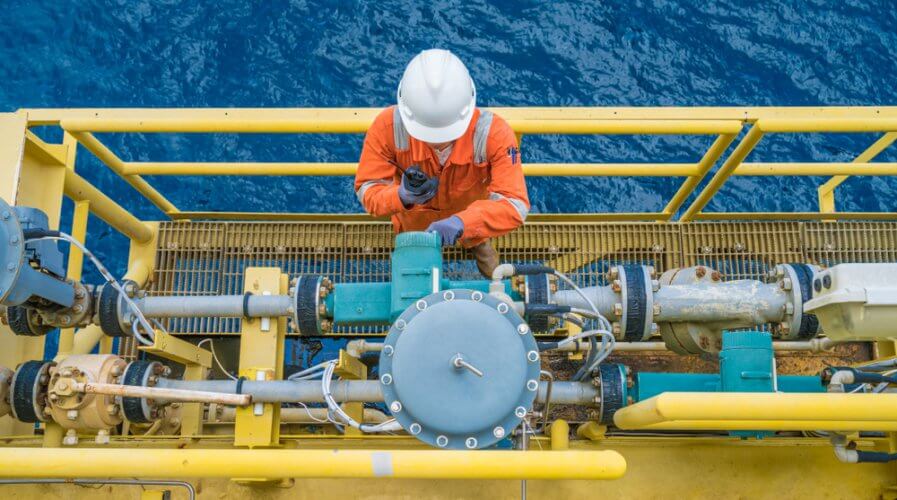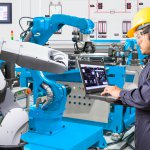
On its way to becoming the world’s largest LNG producer, Australia can use some RPA. Source: Shutterstock
How RPA can help Australia’s oil and gas industry
AUSTRALIA’s oil and gas industry is growing rapidly and is on its way to becoming the world’s largest producer of liquified natural gas (LNG).
So far, the country has been focused on making massive investments and construction of its oil and gas facilities, and is finally transitioning to operation and maintenance — which means, local companies and operators need to find ways to gain efficiencies and streamline functions to stay competitive in a global marketplace.
While the oil and gas industry isn’t what it was a few years ago, it’s still quite profitable — and Australia has quite a few competitive advantages that will help fuel the country’s growth in the industry for the next decade or so (at the very least).
From its strong position in LNG, to the large untapped unconventional prospective and contingent resources the country has, to proximity to Asia markets, and even the leading research institutions and capabilities the country has developed, everything points to a strengthening oil and gas industry in Australia.
“We have seen from the previous period of rapid growth across Australia’s oil and gas industry that sector-wide collaboration to address workforce planning issues is absolutely critical to maintain and increase efficiencies and embrace new technology,” said National Energy Resources Australia CEO Miranda Taylor.
Clearly, there’s an understanding that the industry needs a stronger focus on technology to drive the next phase of growth.
However, adopting some of the new technologies such as artificial intelligence and the internet of things (IoT) can take quite a lot of time. Starting out with a quicker solution, on the other hand, can help jump-start the industry’s digital transformation agenda.
One of the quickest and most effective technologies that can significantly benefit Australia’s oil and gas industry is robotic process automation (RPA).
Essentially, RPA comprises of script-based bots that automate repetitive tasks, helping executives save hours of time that they can spend on adding more value to the business. Here are some functions that RPA can make significant contributions to:
# 1 | Joint venture accounting
Joint ventures are very important to oil and gas companies, given the various geographies they operate in and the value (and shareholding pattern) of each company.
As a result of the complexities, effective management of joint venture accounting activities is a major challenge.
Moreover, the variances in accounting principles involved in different regions and applicable to the different entities in the joint venture make thing even more challenging.
Fortunately, although complex for the human mind, the tasks are quite repetitive if a certain method is followed. As a result, RPA can be significantly useful to oil and gas professionals in this field.
# 2 | Lease record management
Companies like Exxon Mobil, Chevron, and Total have leases worth billions of dollars. However, the fact that several of their operations are run in collaboration with foreign governments and partners, makes the lease record management quite a task.
Using RPA, oil and gas companies can not only automate the payment required for the leases but also generate reports on different leases across geographies, metrics around profitability, and project future trends to help management make better choices.
In lease record management, experts believe RPA can actually make a significant difference to the productivity of executives, allowing them to add more value to their daily work than previously possible.
# 3 | Revenue and JIB netting
The oil and gas industry is quite unique. The oil fields are owned by one party (usually a government) and exploration costs are either borne by a joint venture between domestic and foreign players or paid for basis an agreement or contract. As a result, revenues are also split — sometimes proportionately, sometimes not.
A unique method of managing the income and expenses in the industry is known as joint interest billion (JIB) which divides the revenues and expenses from an oil project among its partners according to their standing agreement.
Since JIB netting is a ‘standardized process’, it’s easy for RPA to take over the task, allowing executives to spend their time reviewing and managing the overall operation better.
READ MORE
- 3 Steps to Successfully Automate Copilot for Microsoft 365 Implementation
- Trustworthy AI – the Promise of Enterprise-Friendly Generative Machine Learning with Dell and NVIDIA
- Strategies for Democratizing GenAI
- The criticality of endpoint management in cybersecurity and operations
- Ethical AI: The renewed importance of safeguarding data and customer privacy in Generative AI applications




